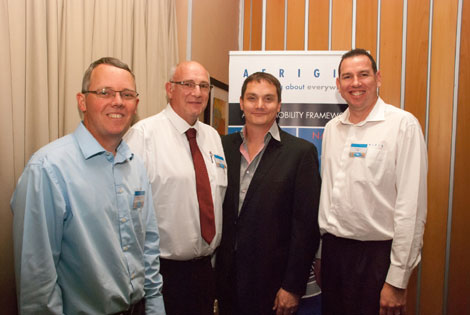
Top stories






More news


Marketing & Media
Ads are coming to AI. Does that really have to be such a bad thing?













The company's Brian Civin explained that two key elements in any solution are data and the application of data. On the data front AfriGIS's Christopher Ueckermann spoke about updates to their datasets, a portfolio which includes a National Address Database (NAD), Street Centrelines, Points of Interest, Sectional Schemes, Gated Communities, SG Towns, Cadastre, Value Added Deeds, and other datasets. Most updates were to the Polokwane region, as well as in the Western Cape, Gauteng and KwaZulu-Natal provinces.
The company uses a unique ID for their dataset entries to aid with dataset management and maintenance. Entries are also assigned a confidence value between one and eight, which rate the accuracy and reliability of an entry.

The company's CIO, Marius Cronje, considered hardware infrastructure, which can be a real limitation in the application of data. Understanding hardware infrastructure helps users set realistic expectations on their hardware. It also helps them understand the financial implication and business case for their hardware requests.
The size of geospatial datasets can strain networks and affect reliable access to the data. Cronje compared hardware infrastructure in traditional work environments (typical office network) with multi-office network setups and finally compared these to the online environment with a very different hardware infrastructure. He also showed how expensive the difference between 99,7% and 99,99% "server uptime" can be when translated into monetary terms.
Cronje recommended that users always monitor their systems (using online reporting, transactional probes, DNS fail-over and so on) to help with trend analyses and to identify bottlenecks in their system.
Charl Fouché, also from AfriGIS, concluded the workshop with an example of a hardware implementation in which the company set out to design a USSD solution used in the last national elections to help manage voting stations. This case study highlighted the components of a hardware solution and the solution design process.
The next spatial data workshop and 50th data release in December will look at software environments and IT architecture.
Source: http://www.ee.co.za/article/spatial-data-workshop-looks-hardware-infrastructure.html
Content & Photo Credit: EE Publishers & PositionIT